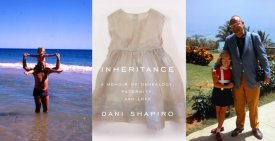
Foo Fighters drummer Taylor Hawkins
With news of Taylor Hawkins’ death at age 50, fans praised his musicianship, his incredible spirit, and his talents behind his Foo Fighters’ drum kit. My thoughts, though, turned to a more intimate legacy: that belonging to Alison Hawkins, a young woman and mother who will forever be known as Taylor Hawkins’ widow.
I, too, am a widow. My husband wasn’t a rock star, except to my children and me. But in finding a path for my own journey as a grieving woman, I sought the widows of rock stars and musicians who died young. I’ve met with several, bonding over shared experiences and loss. Though we have much in common, there are elements of their grief experiences I’ll never share.
Through interviews, I’ve learned that being the wife or lover of a famous musician has different elements of grief. Early on, there’s the wall-to-wall, intrusive news coverage, often filled with speculation. Then, the additional grief of fans, millions of people who never knew this person, but feel they do. Adding to all this is the ability to construct a truthful narrative around this person’s life and death, something which should be the sole responsibility of the family, instead can be up for grabs by those with different priorities.
I think of the first “rock widow,” Maria Elena Holly, who learned of her husband Buddy Holly’s death in a plane crash from a report on the radio in 1959. So traumatic was her experience, she suffered a miscarriage. Subsequently, rules were enacted whereby the FAA must inform next-of-kin prior to notifying media of crash fatalities to avoid incidents like Maria Elena’s. But in today’s world of immediate access, these guidelines hold little sway when people want a story.
In the wake of Hawkins’ death, fans and colleagues remember him as a dedicated musician who truly loved the work he was so good at. Some have commented in anger at what they perceive as a potentially reckless act. But do fans have a right to feel so betrayed?
Peggy Sue Honeyman-Scott, whose husband, Pretender’s lead guitarist James Honeyman-Scott, died of intolerance to cocaine, rather than an overdose, knows about this. James had been touring for two years, an experience that left him exhausted. The two were settling into life in Austin, TX, where Peggy Sue hoped James could rest and regain his health. Instead, he returned to London to deal with band member Pete Farndon. Two days after Farndon was told to leave the band, James was found dead. Peggy Sue has spent countless hours correcting the story of James’ death from overdose to heart failure caused by cocaine intolerance.
“There’s only so much I can do,” she says. “To say he died of a heart problem isn’t ‘rock and roll’ enough. I correct information online; I’ve even gotten into arguments with strangers who think they know the story better than I do. It becomes another painful reminder.”
Within hours of Hawkins’ death, there was speculation, fueled by announcements from Columbian officials of the results of preliminary toxicology reports. Why are these reports made public when they should only be shared with immediate family and, if necessary, law enforcement? Though this tragedy occurred abroad, similar leaks plague families here as well.
“Fans think they’ve had something precious stolen from them,” says Gretchen Parsons Carpenter, whose first husband, Gram Parsons, died at age 26 of an overdose. “They don’t realize who the person is with the real loss. They can’t grasp that someone is hurting far worse than they can imagine.”
When Gram left LA and traveled to Joshua Tree where he died, twenty-one-year-old Gretchen was portrayed as jealous and blamed by many. Gretchen believes most people overlook the full circumstances. “We were both just kids,” Gretchen says. “I would’ve done anything to make it better and stop it from going where it went. It would be hard for me to do that now, but to do it then, as a teenager? I just don’t know what more I could have done.” She avoids social media because the stories are so painful, forty years later.
In conducting interviews, I’ve seen rooms full of memorabilia—gold records, guitars hung on the wall. Often, widows are tasked with tracking the use of music and must fight for royalty payments. How does one move on when steeped in the life of the person lost, when perpetuating the late husband’s legacy is both necessary for survival and a great responsibility? These are widows whose livelihoods often require they keep one foot firmly rooted in that past.
How does one move on when steeped in the life of the person lost, when perpetuating the late husband’s legacy is both necessary for survival and a great responsibility?
Being the widow of a rock star almost certainly means Alison Hawkins will spend years trying to write the narrative of her husband’s full life, as well as his last hours, a potential battle with which she may be constantly engaged. A never-ending Sisyphean task and a burden most of us will never understand. How, for instance, does Gloria Jones, who lived and had a son with 70’s rocker Marc Bolan, tell the story of their life when fans still taunt her for driving the car in which Bolan died? She has found peace running an orphanage in Sierra Leone, West Africa, far from media.
I’ve told my husband’s story of battling cancer many times. My memories are never called into question. But, for those loved by strangers, there are millions of people who feel some connection to the story when really, that truth belongs only to the people that knew them best and whom they loved most.
Though I cannot change the potential course of Alison Hawkins’ journey, I can say the women I’ve interviewed are strong, resilient, and guard their memories with a rare ferocity. They are the most amazing people I’ve met. They find peace in private, quiet moments, and know their truths intimately. They’ve endured and thrived in unexpected ways. Yes, they understand deep pain, but they also know life in its fullest form. May that ultimately be your legacy too, I would tell her.
Lori Tucker-Sullivan’s writing has appeared in The New York Times, The Washington Post, The Manifest-Station, Motherwell, and more. Her book, I Can’t Remember If I Cried: Rock Widows on Life, Love and Legacy, which profiles the widows of rock stars who died young and what they have taught her about grief, is forthcoming from BMG Books in 2023. Follow her on Instagram at RockWidows.








